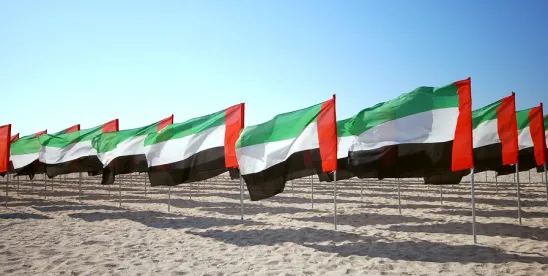The New Competition Law1 maintained the prohibition on restrictive agreements and practices between undertakings whose object, purpose, or impact is to distort, lessen, prevent, or restrict competition. These prohibited agreements and practices include price fixing, determining sales conditions, bid rigging, restricting production or distribution, blocking purchases or sales to specific businesses, or limiting the free flow of goods and services in a relevant market.
The definition of “agreement” is broad and includes written or verbal, implicit or explicit, or public or confidential agreements, arrangements, consortia, or practices between two or more undertakings.
No de minimis
The New Competition Law removed the Old Law’s2 exclusion of “weak-impact” agreements in which the total market share of the parties to the relevant agreement does not exceed 10% of the relevant market. As a result, any restrictive agreement, regardless of the market share of the contracting parties, can now be caught by the prohibition against entry into restrictive agreements.
Individual exemptions
There is still a possibility to seek an exemption notice, which is essentially an individual request for an exclusion of a specific restrictive agreement. An exemption notice can be sought from the UAE Ministry of Economy (Ministry) under Articles 9 and 10 of the New Competition Law. Such exemption notice may be sought on the grounds that the relevant agreement and the restrictions therein are: (i) necessary for promoting economic development, improving the applying undertaking’s performance and competitiveness, developing production or distribution systems, or bringing certain benefits to the customer; (ii) do not go beyond what is necessary to achieve those pro-competitive objectives; and (iii) do not result in completely eliminating competition in the relevant market or a significant part thereof.
Block exemptions
Article 11 of the New Competition Law also provides that certain categories of contracts and related economic activities may be exempt from applying for individual exemptions through an exemption notice by virtue of a resolution of the minister and subject to specific conditions and limitations. Such resolution has not yet been published. It remains to be seen whether the Ministry may adopt a similar approach to the European Commission by publishing guidelines to allow for general exemptions akin to the European Union’s block exemptions.
Comparison with Article 101 TFEU
The prohibition against restrictive agreements under the New Competition Law is similar to its EU counterpart set out under Article 101(1) TFEU, which prohibits agreements between undertakings, and concerted practices that have the prevention, restriction, or distortion of competition within the EU internal market as their object or effect.
First, the European Union also prohibits hardcore cartels as “by object restrictions”—i.e., conduct that is regarded by its very nature as being harmful so that it is not necessary to prove actual or potential effects—such as agreements or concerted practices that have the object to fix prices, limit or control production, share markets, customers, or sources of supply.
Moreover, similar to the New Competition Law, Article 101(3) TFEU allows for the possibility of an exemption by balancing the restrictive and pro-competitive effects. Broadly speaking, in order to be eligible for an exemption under Article 101(3) TFEU, the restrictions contained in the agreement must be necessary and proportionate to achieve a pro-competitive objective that benefits the affected consumers and do not eliminate competition in the common market. These conditions are unlikely to be met for hardcore cartels. A price-fixing, market allocation or big rigging arrangement will never be deemed to be necessary and proportionate to achieve a pro-competitive objective. Therefore, Article 101(3) is more relevant for agreements and practices that are not hardcore restrictions, but may have anticompetitive effects.
In contrast with the United Arab Emirates, which has an individual exemption regime, the EU regime requires the parties and their counsel to carry out a self-assessment of the compatibility of the arrangement under Article 101(1) TFEU, as there is no longer the possibility to seek an individual exemption under Council Regulation (EC) No 1/2003.
Second, unlike the New Competition Law, the European Commission is required to assess the market power of the relevant undertakings when assessing the effect of restrictive agreements under Article 101(1) TFEU, as well as the market conditions, provided that such agreements are not “by object restrictions” such as hardcore cartels. Hardcore cartels do not require the Commission to define markets or assess the effect of the restrictive arrangements. However, for the restrictions that are not “by object restrictions”, the European Union contains a de minimis safe harbor, which is 10% for agreements between competitors or 15% for agreements between noncompetitors. With respect to these agreements, the Commission will not open proceedings either upon a complaint or on its own initiative. In addition, the horizontal cooperation guidelines and vertical restraints guidelines contain certain safe harbors, below which competition concerns are unlikely to arise, provided that such agreements do not contain any “by object restriction.”
The EU regime also provides for block exemptions for certain types of agreements that meet certain criteria. Subject to compliance with specific conditions and thresholds, such block exemptions include those regulating vertical agreements as well as horizontal agreements (in particular, technology transfer agreements, research and development agreements, and specialization agreements).
Penalties
The New Competition Law enhances coordination among the Ministry, sector regulators, and other UAE governmental authorities. It has implemented stricter penalties for those found engaging in anticompetitive behavior, with the maximum threshold for fines raised to 10% of an undertaking’s annual total sales realized in the United Arab Emirates during the last fiscal year or AED 5,000,000, if the annual total sales cannot be computed. This contrasts with the European Union where the European Commission can impose fines of up to 10% of the undertaking’s global annual turnover in the last financial year. The undertaking is composed of the highest parent held liable and all its subsidiaries. The consolidated turnover of that group of companies is relevant.
Footnotes
1 Federal Decree-Law No. 36 of 2023 on the Regulation of Competition.
2 UAE Federal Decree-Law No. 4 of 2012 Concerning the Regulation of Competition, which was repealed by the New Competition Law.







 />i
/>i

